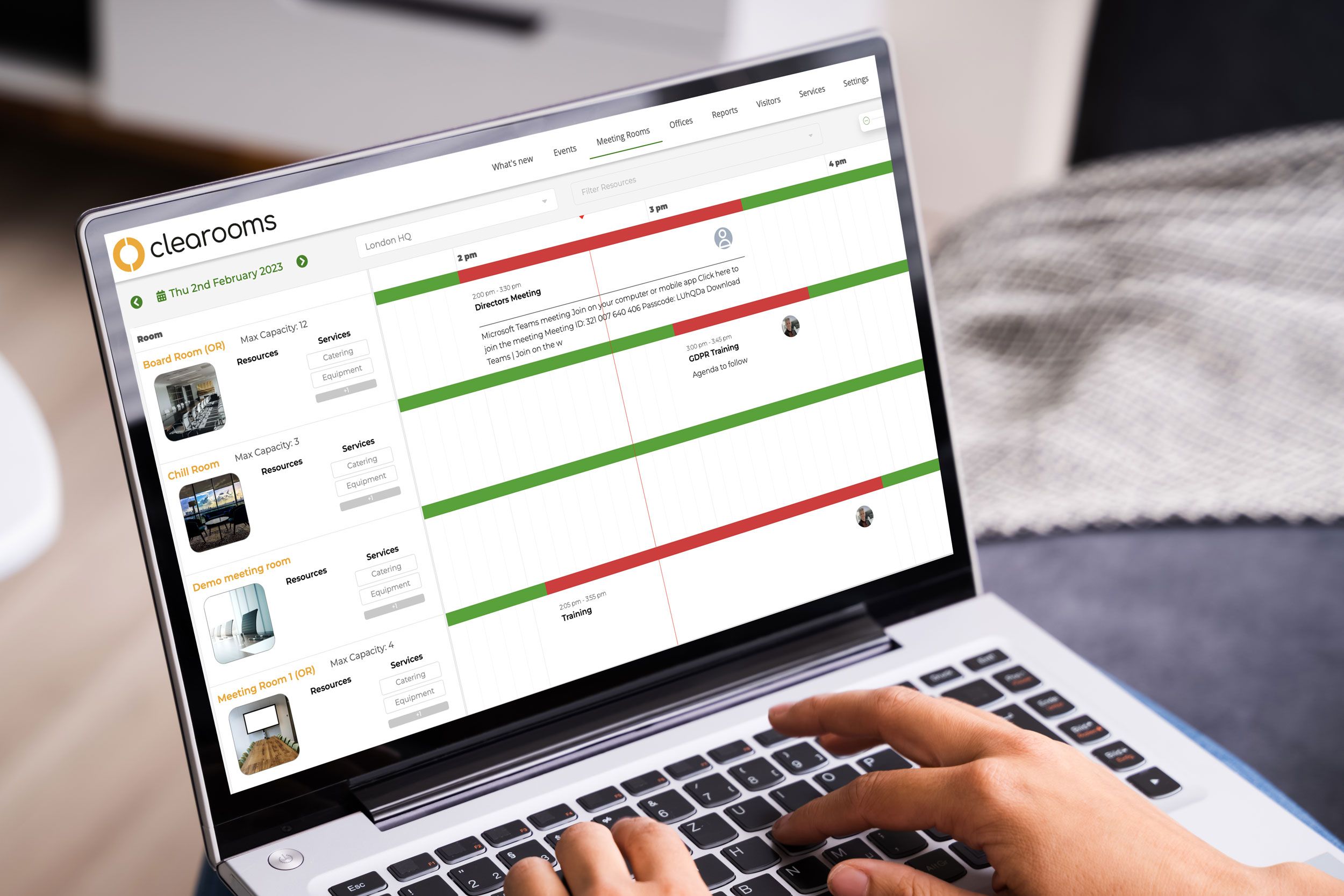Top Trends in Workspace Management for 2024

In today's fast-changing work settings, how we manage workspaces is always evolving. As technology advances and the workforce changes, organisations are constantly updating their approaches to workspace management. As we delve deeper into 2024, several key trends are emerging, reshaping the way businesses approach workspace management.

Hybrid Work Models
The rise of remote and hybrid work arrangements has become a defining feature of the contemporary workspace. In 2024, this trend continues to gain momentum, with organisations embracing flexible schedules and remote collaboration tools. Workspace management solutions are adapting to accommodate this shift, offering features that facilitate seamless coordination between in-office and remote employees. This includes integrating booking software with video conferencing platforms, enabling virtual meetings and collaboration regardless of physical location.
AI-Powered Optimisation
Artificial intelligence (AI) is transforming workspace management by providing intelligent insights to optimise resource allocation and enhance productivity. AI-driven booking software analyses usage patterns, predicts demand, and suggests optimal workspace configurations. By using machine learning algorithms, businesses can reduce wasted space, cut costs, and design more efficient work environments tailored to their teams' specific needs.

Flexible Booking Systems
Traditional fixed desks are giving way to more agile and adaptable workspace solutions. Employees now expect to easily book desks, meeting rooms, and spaces according to their preferences and work styles, whenever they need them. Flexible booking systems empower employees to choose where and how they work, fostering autonomy and improving overall satisfaction. Additionally, by using dynamic pricing models, organisations can better use resources and offer employees more flexibility.
IoT Integration
The Internet of Things (IoT) is transforming workplaces by connecting them intelligently. Sensors placed in offices gather live information on occupancy, temperature, lighting, and air quality. This data helps businesses improve workspace conditions for better employee health and comfort. Management systems then use this data to make the most efficient use of space, predict maintenance needs, and promote employee wellness.
Health and Wellness
In 2024, workspace management is embracing health and wellness initiatives. Companies are integrating features like standing desks and relaxation areas to promote employee wellbeing. They're also offering wellness programs through booking software. Prioritising employee health boosts morale and productivity.
Sustainable Practices
With a growing focus on the environment, sustainability is a key focus in managing workspaces. Workspace booking software contributes to sustainability by using space efficiently, encouraging collaboration, and reducing energy waste. It also provides data for eco-friendly decisions, promoting resource efficiency and waste reduction, ultimately fostering a sustainable culture among employees.
Experience-Driven Design
As competition for talent grows, companies see the value in offering great workplace experiences that boost creativity, teamwork, and employee involvement. Workspace management goes beyond just handling logistics; it also focuses on creating a welcoming atmosphere. Employers invest in attractive designs, comfortable furniture, and added amenities to improve the overall work environment. Booking software includes feedback options to gather employee opinions, allowing for ongoing adjustments to meet changing preferences and needs.
Data Security and Privacy
As digital tools and cloud-based solutions become more common, data security and privacy are top priorities in workspace management. Companies are taking strong steps to protect sensitive information and comply with regulations. Booking software providers are improving encryption, using multi-factor authentication, and regularly auditing security to prevent cyber threats and unauthorised access.
In 2024, workspace management is changing significantly due to technology, evolving work styles, and a focus on employee well-being and sustainability. By adopting trends like AI optimisation, flexible desk and meeting room booking, and IoT, organisations can create modern, efficient, and employee-friendly workspaces. These innovations create agile, efficient, and employee-friendly work environments, positioning companies for success in the future.
Navigating today's workplace complexity requires embracing change, staying flexible, and focusing on employee needs. With effective tools and strategies, companies can increase their workspace potential, fostering innovation, collaboration, and productivity for years to come.
